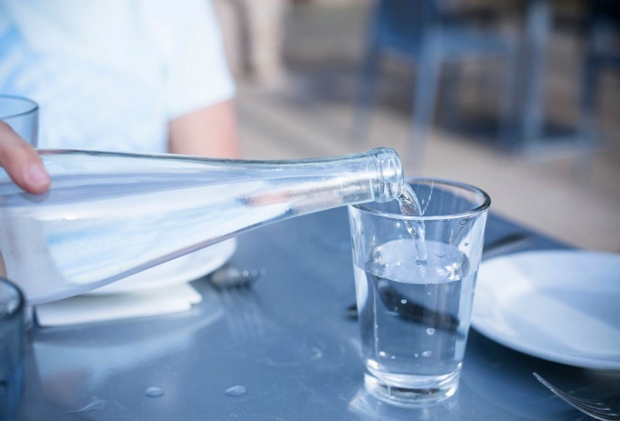
Why You Should Use Distlled Water for Plants
Distilled water has been proven to help your indoor plants grow better as it removes unwanted bacteria, chemicals, and more. If you want to keep your plants healthy, you can purchase distilled water at the store or you can distill it yourself at home.
Even if you’ve never owned plants before, you probably know they require three things to survive: sunlight, soil/nutrients, and water. You can always adjust the amount of sunlight your plant gets and change up the fertilizer/soil, but what about water? It’s all the same, right? Well, not quite. Not all water is created equal and that tap water you’ve been using for your plants might not be the best option.

What Is Distilled Water?
Most water that you get from the tap will contain chlorine in order to make it safe for human consumption. Unfortunately, it turns out chlorine isn’t so great for plants. While outdoor plants can handle some chemicals in their water as the rainwater will dilute them, indoor plants have to rely on the water you give them. These can build up in the soil and eventually kill your plant.
So instead of just pouring tap water on your plant, it’s important to first distill it. Distillation is the process of separating a liquid into the substances that make it up via evaporation. This process removes:
- Bacteria
- Parasites
- Viruses
- Organic and inorganic chemicals
- Heavy metals
- Other contaminants
Once you complete the process, you are left with very close to pure water.

Making Distilled Water
It’s very simple to make distilled water at home so long as you have some space and don’t mind heating up the kitchen by boiling water. All you need to do is follow these steps to create your own distilled water:
- Fill a stainless steel pot with a quarter inch of tap water
- Put a heat-resistant glass bowl on top
- Turn a glass lid upside down and place it on top of the bowl. Place ice on top.
- Turn on the stove and bring the water to a boil
- Once it starts boiling, turn it down to a simmer
- Add more ice to the lid if it melts
Continue this process until you get the desired amount of distilled water. Essentially, this method allows the water in the pot to evaporate, but when it reaches the cold lid it will condensate. This condensation will then drip into your bowl giving you distilled water! Of course, if you don’t want to go through that process, you can just buy distilled water from your local grocery store. You can also let tap water sit out on the counter for 24 hours before using it on your potted plants as chemicals like chlorine and fluoride will dissipate.

Using Distilled Water for Plants
In a side-by-side comparison, plants that were watered with distilled water grew faster and stronger than those watered with tap. This is because many of the chemicals found in tap water can inhibit a plant’s ability to absorb nutrients from the soil.
With that said, distilled water isn’t perfect and you still need to consider a few factors if you want your plants to thrive
- pH - perfectly distilled water should have a completely neutral pH of 7, but some plants prefer a slightly lower pH.
- Nutrient deficiency - plants need magnesium, potassium, and calcium in order to grow. Distilled water will not contain any of these trace elements, so you will have to provide this through the soil through fertilizer. If you are creating a hydroponic garden, you have to be even more careful to add in the appropriate nutrients.
Once you’ve figured out what your plant needs in terms of pH and nutrition, it should be smooth sailing from there for the most part. You can water your plants as you normally would. Make sure not to under or over water as distilled water doesn’t have any remarkable properties that provide more or less hydration.

Conclusion
You might not need to water all your plants with distilled water, but it is something to consider, especially for the more delicate houseplants you might have. If nothing else, look into your local water supply for the pH, chlorine usage, and trace minerals and metals in the water. If your water is very acidic and hard, it might be worth it to go the distilled water route.
Of course, even if you have a great water supply, you might want to try out distilled water anyway. There’s no harm in testing it out on your indoor or outdoor plants, so you might as well try it out. Do an experiment to see if it actually makes a difference on your plants. Even if you don’t, you lose nothing by trying it out!